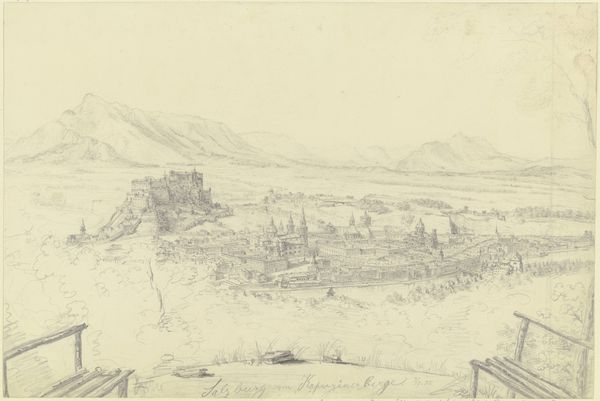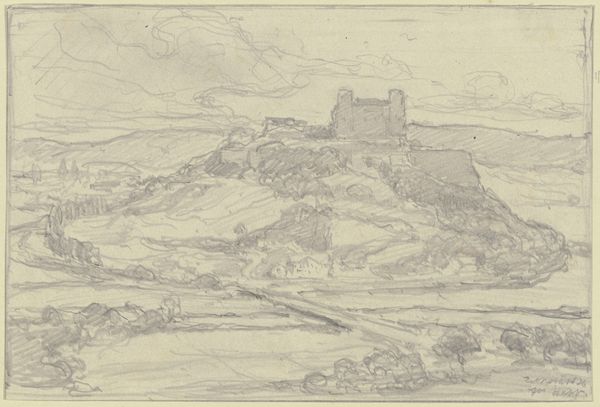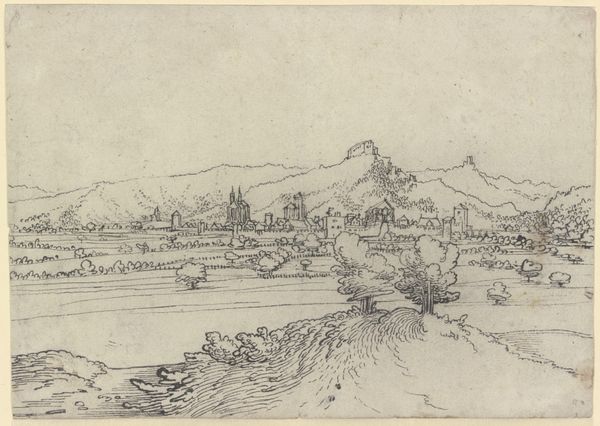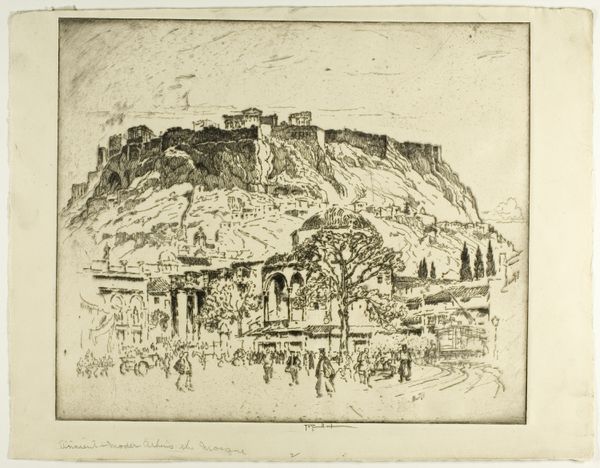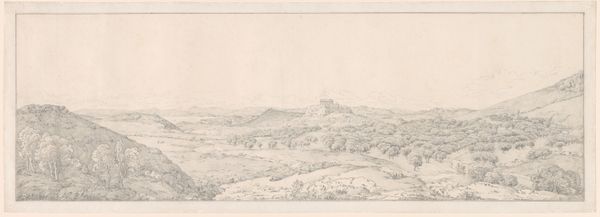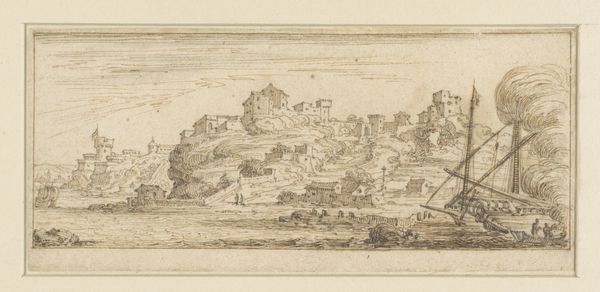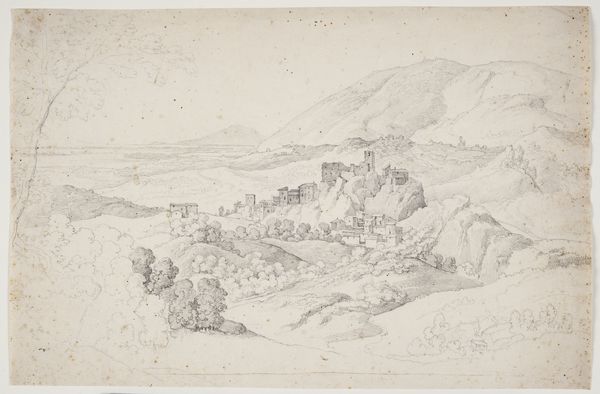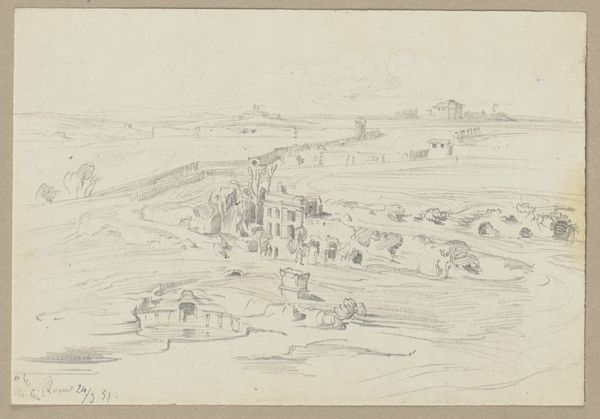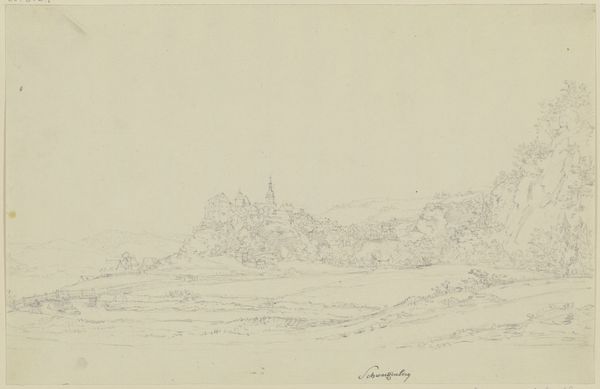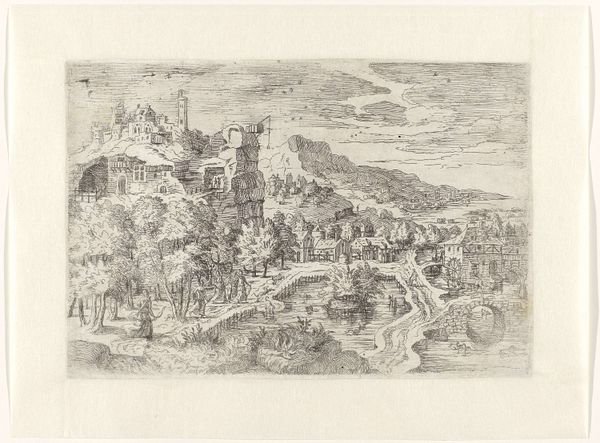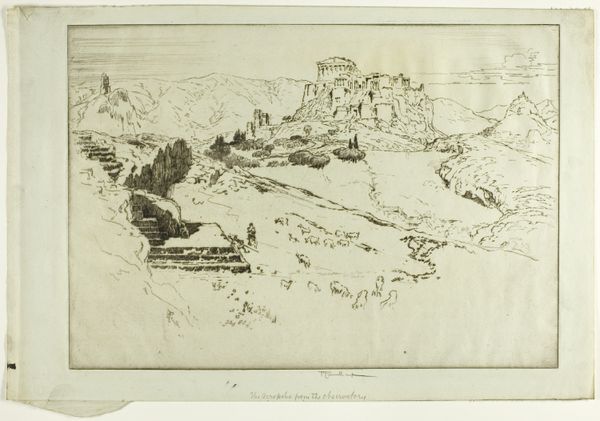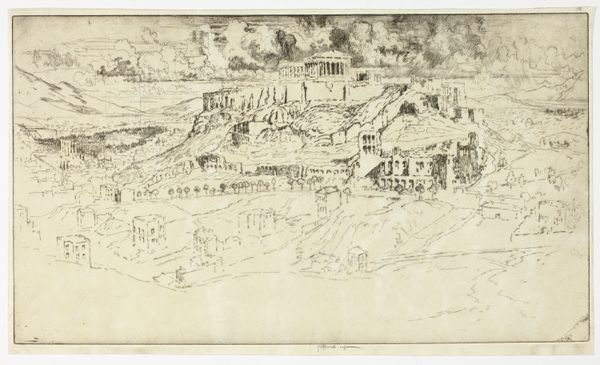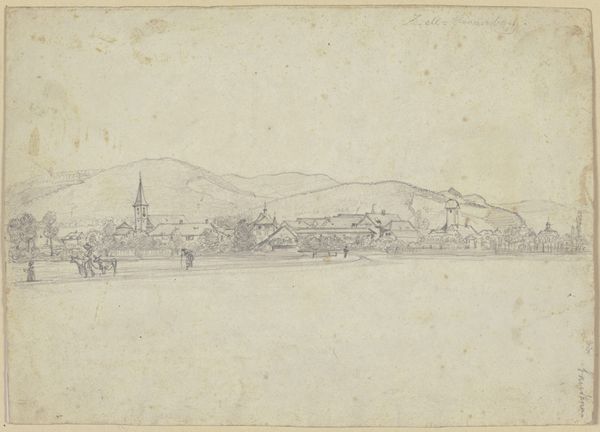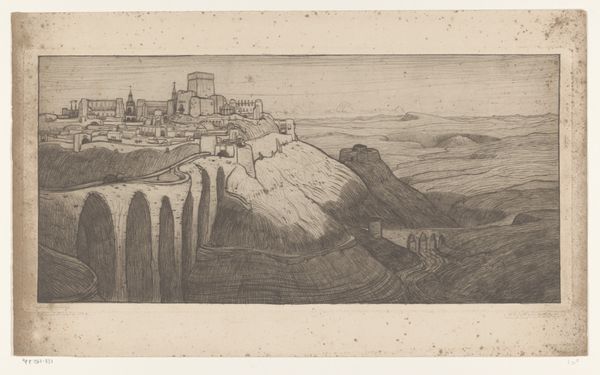
drawing, print, etching
#
drawing
# print
#
etching
#
landscape
#
etching
#
geometric
#
cityscape
#
modernism
Dimensions: 264 × 380 mm (image); 299 × 440 mm (sheet)
Copyright: Public Domain
Curator: Joseph Pennell created this etching, “Athens from Mount Lycabettus,” in 1913. Editor: It has such a delicate, almost ghostly feel to it. You see the whole city rendered with such fine lines, dominated by the Acropolis, and then dissolving into the background. What kind of statement was Pennell trying to make by choosing the etching medium and focusing on the materiality of such a famous place? Curator: Well, Pennell was an expatriate American artist who deeply identified with the aesthetics of the British Arts and Crafts Movement. His work very much negotiates the politics of nationalism, nostalgia, and even colonialism during a turbulent time. There’s a longing here. The print hints at the classical grandeur but rendered in a way that highlights both progress and potential decay. It embodies anxieties tied to Western notions of history and power. Editor: Absolutely, because of the process itself—the acid biting into the metal plate, the controlled application of ink—the finished work seems preoccupied with layers of history and human intervention in ways other art forms aren’t. You are keenly aware that this is labor translated into imagery. Curator: And you have to consider that at the time, etching and printmaking more generally were being actively reclaimed by artists precisely as a reaction against industrialization and the alienation of labor. A conscious turn toward older means of production. These etchings, mass produced as they may be, romanticize craftsmanship while depicting rapid urban expansion and change. Editor: But doesn’t it seem somewhat contradictory? Reproducing an image of the urban landscape using techniques that evoke pre-industrial craftsmanship to confront anxieties surrounding mass production? The means almost work against the subject itself. Curator: It’s exactly within that tension that Pennell operates. Think about how his contemporaries viewed ancient Greece - its art, architecture, and philosophy. These etchings can be viewed as visual artifacts deeply embroiled in ongoing debates around national identity, the role of the artist, and our relationship with antiquity itself. Editor: Looking at this has also really changed my perception about modern landscape: not only as static vistas to admire from afar but as spaces that are fundamentally mediated through complex interactions between the physical world and the marks we leave behind. Curator: Indeed. It's a view that forces us to confront the enduring yet evolving legacies encoded within the cityscape.
Comments
No comments
Be the first to comment and join the conversation on the ultimate creative platform.
